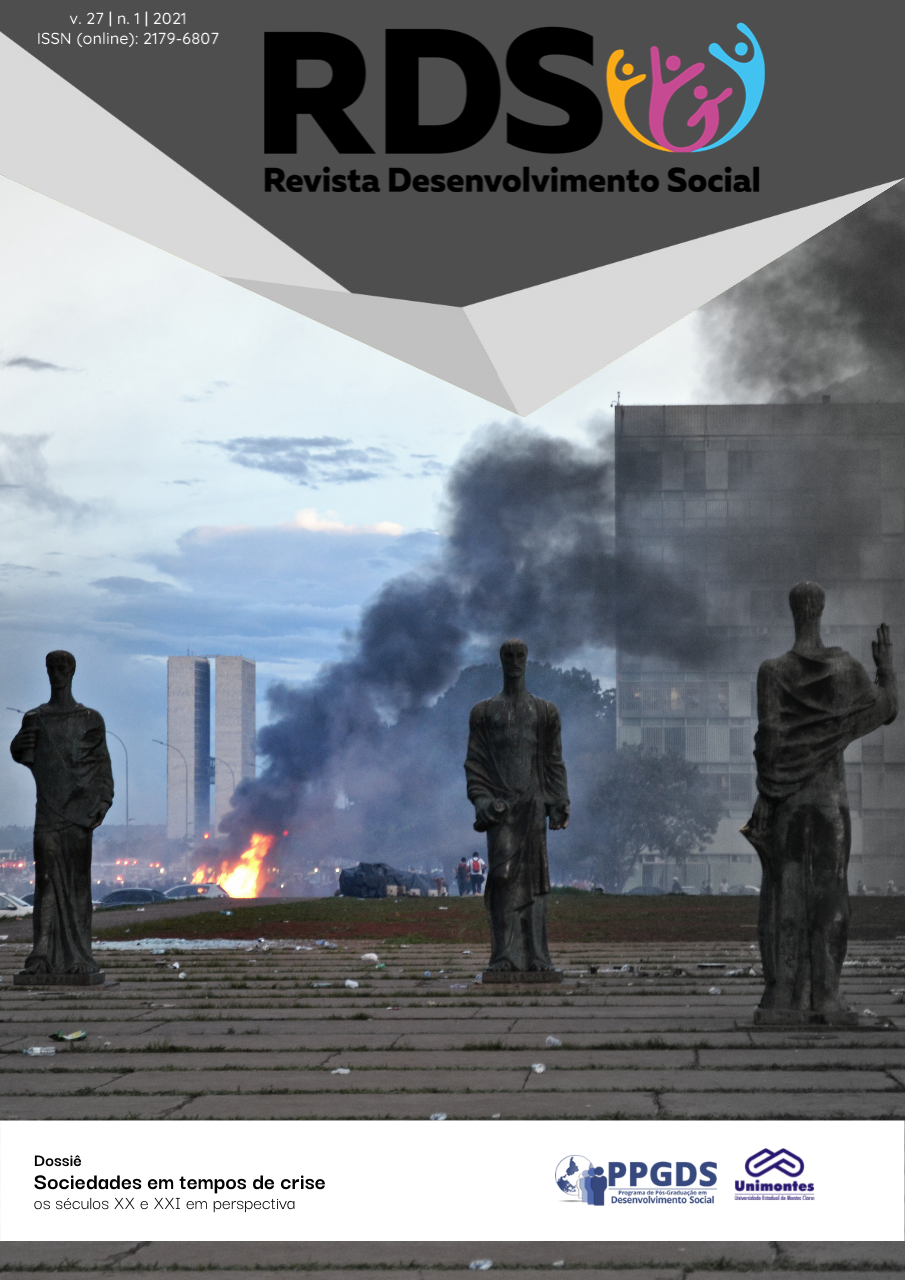The League of Nations in times of crisis
The diplomate as an intellectual mediator
DOI:
10.46551/issn2179-6807v27n1p98-117Keywords:
League of Nations, Diplomacy, Inter-war period, Intellectual Mediators, First World WarAbstract
After the First World War, Brazil claimed a permanent seat on the Security Council of the League of Nations, an organization that sought to build multilateral diplomacy, in order to prevent new world wars. Brazilian diplomacy in the League of Nations was known for its historiography for presenting non-diplomatic decisions. Brazil vetoed Germany's entry into the League, causing international discomfort, as well as demanding a permanent seat as a condition to remain in the organization, withdrawing definitively from the League in 1926. Regarding the reasons behind these decisions, however, there is much to debate. Until then, historiography had pointed out that decisions were made due to the impetuous and uncompromising personality of President Arthur Bernardes. New research, however, shows that there are more complex reasons behind Bernardes' decisions. These reasons are linked to the power relations between the President and his diplomats. In this article, we will analyze these power relations between Arthur Bernardes and his international informants, through the category of intellectual mediators of Ângela de Castro Gomes, to investigate further the decision-making process that led Brazil to leave the League of Nations.
Downloads
References
AMARAL, Aracy. O modernismo brasileiro e o contexto cultural dos anos 20. Revista USP. São Paulo, n. 94, p. 9-18, jun./jul./ago. 2012.
BARACUHY, Braz. A Crise da Liga das Nações de 1926: Realismo Neoclássico, Multilateralismo e a Natureza da Política Externa Brasileira. CONTEXTO INTERNACIONAL: Rio de Janeiro, vol. 28, no 2, julho/dezembro 2006, pp. 355-397.
CAMPOS, Filipe Queiroz de. Diplomacias Secretas: o Brasil na Liga das Nações. Curitiba: Editora Appris, 2020.
CAMPOS, Filipe Queiroz de. Tensões Entre a Diplomacia Brasileira e a Latino-americana na Liga Das Nações na década de 1920. FDC 2019, 4, 42-63.
CERVO, Amado e BUENO, Clodoaldo. História da Política Exterior do Brasil. Brasília: Editora Un, 2002.
CORREA, Sílvia Adriana Barbosa. Cem anos de Historiografia da Primeira Guerra Mundial: entre história transnacional e política nacional. Topoi, Rio de Janeiro, v. 15, n. 29, p. 650-673, jul./dez. 2014. Disponível em: http://www.revistatopoi.org/topoi29/ENSAIO_650.pdf
FOUCAULT, Michel. Microfísica do poder. 8. ed. Rio de Janeiro: Graal, 1989.
GARCIA, Eugênio Vargas. O Brasil e a Liga das Nações (1919-1926). Porto Alegre: Editora da UFRGS.
Gomes, Angela de Castro; Hansen, Patrícia Santos. Apresentação- Intelectuais, mediação cultural e projetos políticos: uma introdução para a delimitação do objeto de estudo. In: Gomes, Angela de Castro; Hansen, Patrícia Santos (orgs). Intelectuais mediadores: práticas culturais e ação política. Rio de Janeiro, Editora Civilização Brasileira, 2016
HILTON, Stanley. Afrânio de Melo Franco e a diplomacia brasileira, 1917-1943. Revista brasileira de política internacional, a. XXIX, n. 1, 1986, p. 15.
MORENO, Jean Carlos. Revisitando o conceito de identidade nacional. In: RODRIGUES, C. C.; LUCA, T. R., and
GUIMARÃES, V. (Orgs.). Identidades brasileiras: composições e recomposições [online]. São Paulo: Editora UNESP; São Paulo: Cultura Acadêmica, 2014, pp. 7-29. Desafios Contemporâneos collection. ISBN 978-85-7983-515-5. Available from SciELO Books <http://books.scielo.org>.
SANTOS, Norma Breda dos. Grand Days: noventa anos depois de o Brasil ter deixado Genebra, o que diz a historiografia sobre a participação brasileira na Liga das Nações (1920-1926)? Cadernos de Política Exterior, ano II, n. 3, jan. /jul. 2016
WINTER, Jay (Ed.). The Legacy of the Great War: Ninety Years On. Columbia; Londres: University of Missouri Press, 2009.
Published
How to Cite
Issue
Section
License

This work is licensed under a Creative Commons Attribution-NonCommercial-NoDerivatives 4.0 International License.
Esta licença permite que outros(as) façam download do trabalho e o compartilhe desde que atribuam crédito ao autor(a), mas sem que possam alterá-lo de nenhuma forma ou utilizá-lo para fins comerciais.












.png)
.png)




.png)









